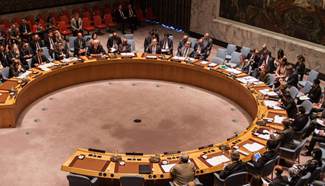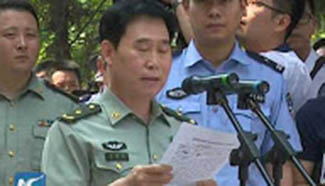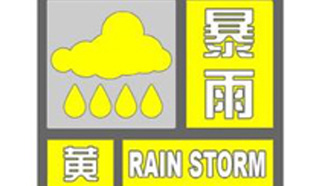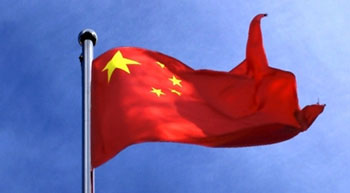SAN FRANCISCO, June 14 (Xinhua) -- A new paper warns that policymakers who consider legalizing some illicit ivory trade may be relying on a faulty theory that legalization makes black markets collapse.
The paper, by Solomon Hsiang, a University of California, Berkeley, public policy professor and director of the campus's Global Policy Lab, and Nitin Sekar, an ecologist at Princeton University, notes that poaching jumped immediately by roughly 65 percent around the world, right when an ivory trade legalization experiment was announced.
In the paper posted on Tuesday by the U.S. National Bureau of Economic Research, Hsiang and Sekar note that black market operators, whose commerce accounts for roughly 20 percent of all global economic activity, make it difficult to develop evidence-based legalization policies because they intentionally hide their trade and do not report production or sales.
In their investigation of black markets, the researchers turned to elephant poaching, which leaves a trail of highly visible dead elephant carcasses for the world to see. "This is a unique opportunity to study illicit markets because poachers never bother to hide or destroy elephant carcasses; it's not worth the trouble," said Hsiang. "So they've basically left us a complete and visible record of their economic activity."
Global trade in ivory in the 1970s and 1980s devastated elephant populations, so all trade around the world was banned in 1989 by the United Nations Convention on International Trade in Endangered Species (CITES).
As results, ivory collected from naturally dying wild African elephants accumulated in government warehouses across the continent, and African governments were not allowed to sell it off. Government leaders proposed some of the warehoused ivory could be sold to reward governments, such as Botswana, that had protected their elephant herds, while flooding the black market for ivory, causing the price to crash and forcing poachers out of business.
In a 2008 decision, CITES announced it would allow sales of legal ivory once by Botswana, Namibia, South Africa and Zimbabwe.
The experiment was the subject of Hsiang and Sekar's analysis using an "event study" approach, as they looked at elephant poaching rates at ecological sites across Africa and Asia to see if the CITES event changed black-market activity, finding that poaching rates stayed up in the years following the experiment and appeared to begin climbing faster, with the poaching surge occurring almost simultaneously across the entire African continent.
"We looked for alternative explanations in the data, but the best evidence still indicates that the legal sale exacerbated the destruction of elephant populations across Africa," Sekar said.
The researchers believe that as presence of legal ivory provides cover for smugglers trying to peddle illegal ivory sourced from poachers, transporting and selling illicit ivory has gotten easier and cheaper, which can boost illegal production even though prices are falling. "Traditionally, analysts have focused on whether prices fall after legalization, but that's the wrong question. Prices can fall even though illicit production is rising," Hsiang said.
Saying their work does not fault CITES, the authors contend the data enables better policy.
"In policy, when we see things that are terrible, it's natural to want to do something," Hsiang said. "But it's important to remember that even though things might be bad right now, our actions might make them even worse."
CITES is set to meet again this year to decide whether to allow another ivory sale by Namibia and Zimbabwe.










